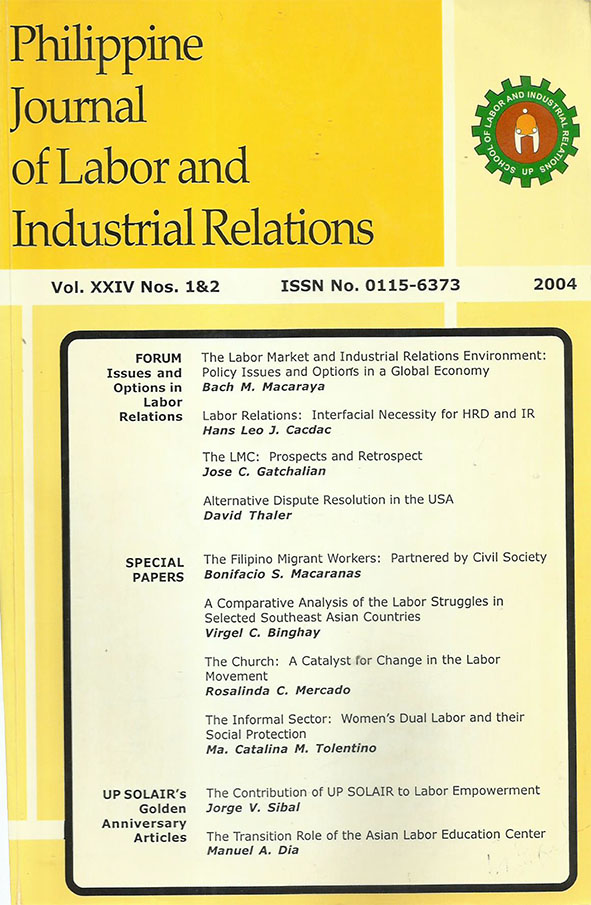A Comparative Analysis of the Labor Struggles in Selected Southeast Asian Countries
Abstract
This paper traces the history of the labor struggles, within the past century, of Southeast Asian countries, particularly: Cambodia, Indonesia, Malaysia, Philippines, Singapore, and Thailand. Labor struggles in these countries have dynamism of their own, with many twists and turns. In general, however, turning points in the history of workers' struggles in the region were influenced and shaped within the premises of transformations that took place over the years, which extend from internal (people's socio-political, economic, and cultural experiences) to external developments like globalization.
Among the greatest milestones in the history of labor struggle in Southeast Asia is the legitimization of the workers' struggle through the trade unions. It will, however, be unrealistic to claim that all had been smooth for trade movements in the region.
Today, recent developments like intense globalization, newer and more advanced technology, international labor migration, and more insidious and strategic forms of employee collectivization - provide the new premises within which workers' struggle has to continue. As the unilateral approach to labor struggle proves to be insufficient in addressing the plight of the workers, this paper culminates at evaluating a new strategy to reinvent labor relations: Will regional standardization be the strategy that will finally pave the way for the protection of the working class?


